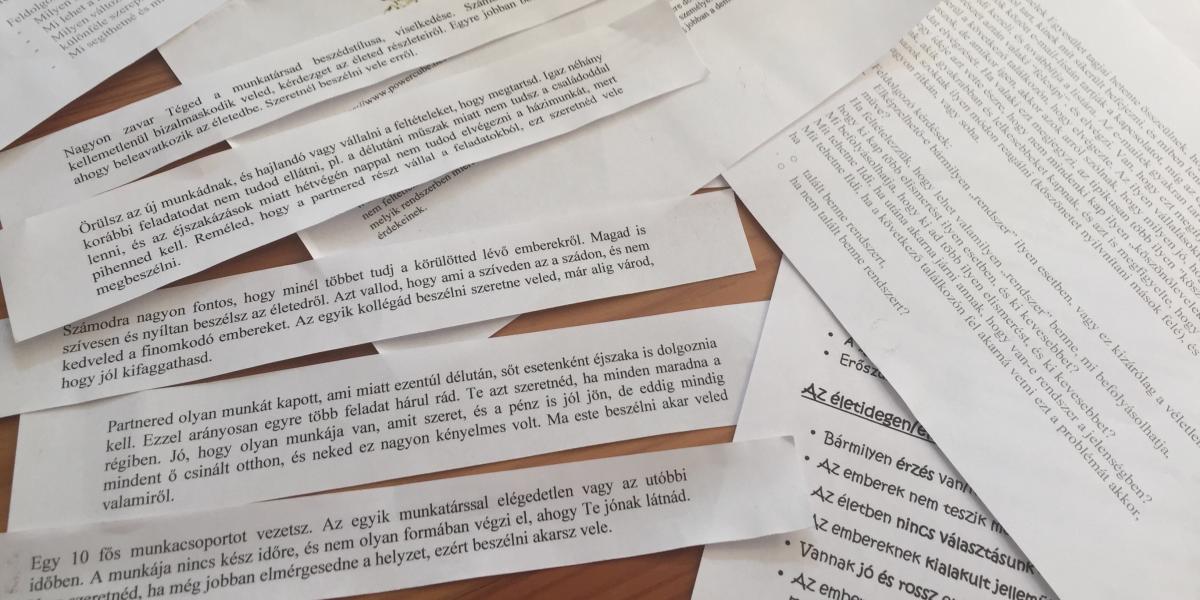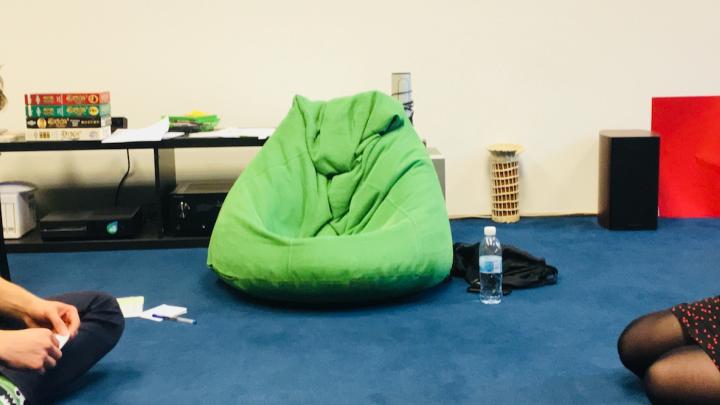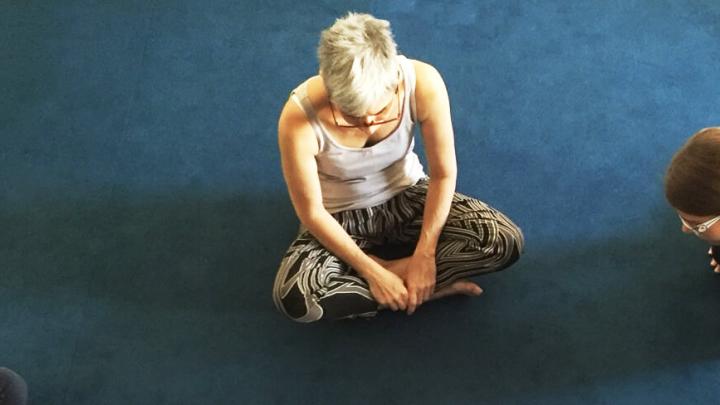
We have discovered that there are situations where NVC doesn't work, and there are also situations where, although we think of ourselves as equal, there are more equal people among us. Judit Wirth opens our eyes six times in two hours and gives us a linguistic framework for even talking about the power imbalances we engage in our corporate and other connections.
Before the workshops, when asked, I said that we are a democratic, flat organization where everyone has equal rights and opportunities to express themselves, make decisions, and collaborate. There is nothing to see here, so why foam at the mouth? The other day I noticed that the newcomer Mark asked his colleagues, who were grumbling in the kitchen if he could shout at the coffee machine, to which the answer was no, and he scuttled off without his coffee. I didn't ask any questions but made a coffee. So how is it? Maybe I don't see power plays because I'm in an advantageous position? Maybe I have blinders on? There are situations where the experience of empowerment is present at different levels. Where is this located, and where do I abuse it?
Once, we talked about visible, hidden, and invisible power.
I have learned to relate to the visible power. It has no sign in itself; it can be this, it can be that. Yet when I look for examples, I think of more bad than good. I used to have a boss who asked me to be a middle manager in a small company of 5 people, to manage the two people I worked with day in and day out. I asked who would benefit and what would change? He said I would report to him on how everyone was doing manage who came and went at what time; in short, I would be in charge of people.
In another company, the middle manager called a company meeting to try to tie up loose ends after a project went wrong. One guy asked for the floor, and the complaints poured out. He said that no one on the team understood product development (apart from him) and that it was impossible to produce good results under those circumstances. I listened with my head down to the dire situation report. I was carried away by the momentum and immediately looked for the "culprits." Before I could draw up my imaginary list, the leader said: this team is working to the best of its ability, and we are here in this circle because we believe we can do our job. In the following, please suggest ways to develop a better quality product.
Instead of blaming people, he stood up for them and called us to work together. He didn't want victims; he wanted a shared solution. It was a liberating experience.
The exercise of hidden power has a very diverse palette. During my university years, one of my classmates took out a sheet of paper, clerks, drew a vertical line, and then wrote names in the left column. There were five of us sitting there; I asked what he was doing. He says he's writing down the bad guys in the class. And he does. He was writing names non-stop. I wouldn't say I like one because of this; I don't want one because of that. I thought I couldn't see correctly.
One of the most prominent methods of covert power is to disclose oneself on some issue of critical importance and withhold information, thereby making oneself inescapable in the organization. I practice this at a high level. I get involved in a case, use my position, dive into the process, and then exit with the knowledge that I have solved the problems well. This was a daily occurrence for me until, thanks to two weekly feedback loops (retros) and colleagues who consciously took up their roles, I was repeatedly confronted with what I was doing. It's an unpleasant experience to be faced with the desire to control, leading me to transgress the collaborative framework we have established together.
The invisible power is about inequalities underpinned by community norms. Changing these is an almost impossible task. They are deeply instilled in us from infancy, from the back-breaking days. Awareness of this, and its application in business, has a worldview depth. This is one of the reasons why it matters what kind of values people make up a company.
Beliefs are based on profoundly encoded thought patterns, which cannot be changed in a company context. Therefore, please do not delude yourself that a person who makes sexist comments in an interview will not be communicating from an (invisible) position of power with their colleagues. For some time now, for example, we have been paying particular attention to two people attending the first interview, preferably a woman and a man. My experience has been that this gives us a more nuanced picture of the candidate and allows us to recommend them for the following group interview.
If the goal is to create and maintain a self-organizing, democratic company, then mapping the belief systems of the people who join is the most critical aspect. I usually ask in interviews which the candidate has helped in the past year. I'm particularly interested in whether they identify someone higher or lower in the hierarchy.
If you don't notice a tendency to abuse power during the interview, you will undoubtedly have your fast later. The most memorable experience I had was an interview at my previous workplace. The man sat there; he knew everything, was convincing, intelligent, experienced, and wanted the job, yet I still had this nagging feeling that something was wrong. The two of us chatted to him, asked him everything we wanted to know, and then said goodbye. My partner said: he's outstanding, but I don't know if he can listen. It was a minor observation, perhaps too small to be taken seriously. We picked it up. Years later, when he had already manipulated everyone around him while at the same time gaining inescapable professional authority, I remembered the interview. That experience was a critical factor in what I looked for in IV recruitment. I am convinced that this is the essential ingredient because we can now operate in a self-organized way, in relative freedom, without dealing with serious conflicts.
I am not deluding myself that a workshop on six suitable power games can significantly change the belief systems of individuals. But these few sessions are just enough to make us aware of the limits of the black hole we call power. We have found some concepts that we can even talk about, and that is a step forward.
Share with your friends!

